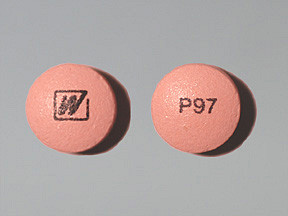PRIMAQUINE PHOSPHATE - ORAL
PHONETIC PRONUNCIATION: (PRIM-uh-kwin FOSS-fate)
COMMON BRAND NAME(S): Primaquine
GENERIC NAME(S): primaquine phosphate
Uses
USES: Primaquine is used with other medications to prevent and treat malaria caused by mosquito bites in countries where malaria is common. Malaria parasites can enter the body through these mosquito bites, and then live in body tissues such as red blood cells or the liver. Primaquine is used after other medications (such as chloroquine) have killed the malaria parasites living inside red blood cells. Primaquine then kills the malaria parasites living in other body tissues. This prevents the return of the infection. Both drugs are needed for a complete cure. Primaquine phosphate belongs to a class of drugs known as antimalarials. The United States Centers for Disease Control provide updated guidelines and travel recommendations for the prevention and treatment of malaria in different parts of the world. Discuss the most recent information with your doctor before traveling to areas where malaria occurs.
How to use PRIMAQUINE PHOSPHATE - ORAL
HOW TO USE: Take this medication by mouth, usually once daily with food to prevent stomach upset, or as directed by your doctor. Follow your doctor's directions exactly. Primaquine is usually taken for 2 weeks after you have left the malarious area. It is started during the last 1-2 weeks of your other malaria treatment or immediately after you have finished your other treatment. Primaquine should not be taken for more than 14 days for malaria treatment. Dosage is based on the kind of infection you have and your response to treatment. Take this medication regularly. To help you remember, take it at the same time every day. It is very important to continue taking this medication exactly as prescribed by your doctor. Do not take more or less of this drug than prescribed. Do not stop taking it before completing treatment, even if you feel better, unless directed to do so by your doctor. Skipping or changing your dose without approval from your doctor may cause prevention/treatment to be ineffective, cause the amount of parasite to increase, make the infection more difficult to treat (resistant), or worsen side effects. It is important to prevent mosquito bites (such as by using appropriate insect repellents, wearing clothes that cover most of the body, remaining in air-conditioned or well-screened areas, using mosquito nets, using insect-killing spray). Buy insect repellent before traveling. The most effective insect repellents contain diethyltoluamide (DEET). Ask your doctor or pharmacist to recommend the appropriate strengths of mosquito repellent for you/your children. No drug treatment is completely effective in preventing malaria. Therefore, seek immediate medical attention if you develop symptoms of malaria (such as fever, chills, headache, other flu-like symptoms), especially while in the malarious area and even after completing this prescription. Quick treatment of malaria infection is needed to prevent serious, possibly fatal, outcomes. When using primaquine phosphate for treatment of infection, tell your doctor if your condition persists or worsens.
Side Effects
Precautions
Interactions
Overdose
Images
Reviews
Faq for PRIMAQUINE PHOSPHATE - ORAL
Primaquine Phosphate-Oral is primarily used to prevent and treat malaria caused by certain strains of the parasite Plasmodium vivax.
Primaquine Phosphate-Oral works by killing the malaria parasites in the bloodstream, preventing the recurrence of the infection in individuals affected by P. vivax malaria.
Primaquine Phosphate-Oral is usually taken once daily with food or milk to prevent stomach upset. It is essential to follow the dosage instructions provided by your healthcare professional.
If you miss a dose of Primaquine Phosphate-Oral, take it as soon as you remember. However, if it is near the time for your next dose, skip the missed dose and resume your regular schedule. Do not double the dose to catch up.
Common side effects of Primaquine Phosphate-Oral may include stomach upset, nausea, vomiting, headache, dizziness, and muscle weakness. Inform your doctor if any of these side effects persist or worsen.
Primaquine Phosphate-Oral may cause hemolytic anemia in individuals with a certain genetic condition called G6PD deficiency. It is crucial to get tested for G6PD deficiency before starting this medication. It is also essential to inform your healthcare professional about any other medications you are taking as they may interact with Primaquine Phosphate-Oral.
Primaquine Phosphate-Oral should be used during pregnancy only if clearly needed and under the guidance of a healthcare professional. It may pass into breast milk, so consult your doctor before breastfeeding while taking Primaquine Phosphate-Oral.
The duration of Primaquine Phosphate-Oral treatment depends on various factors such as the type of malaria, your response to treatment, and other medical conditions. It is essential to complete the full course of treatment as prescribed by your doctor.
It is generally recommended to avoid alcohol while taking Primaquine Phosphate-Oral as it may increase the risk of certain side effects such as liver damage.
Disclaimer
IMPORTANT: HOW TO USE THIS INFORMATION: This is a summary and does NOT have all possible information about this product. This information does not assure that this product is safe, effective, or appropriate for you. This information is not individual medical advice and does not substitute for the advice of your health care professional. Always ask your health care professional for complete information about this product and your specific health needs.


No Reviews Yet